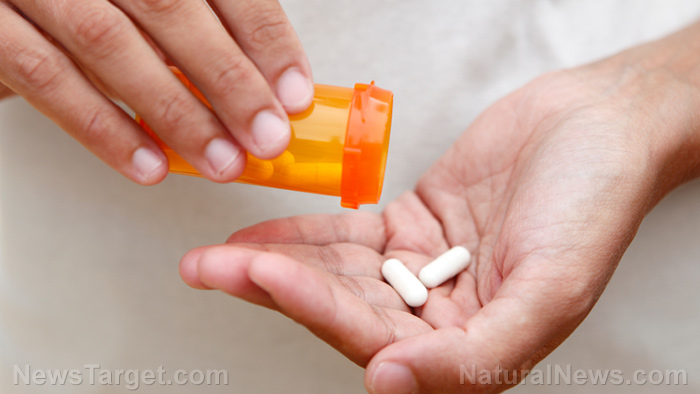OTC antihistamines found to slow production of sexual hormones in men
04/07/2018 / By Zoey Sky

If you’re a male with an allergy and want to have biological children in the future, you might want to skip over-the-counter (OTC) antihistamines. According to a study, OTC allergy drugs may be connected to fertility problems in male patients.
Antihistamines are usually given to individuals so they can manage the symptoms of allergies like conjunctivitis, hay fever, hives, and reactions to insect bites or stings. These drugs are available either OTC or via prescription.
An Argentinian review of studies concerning OTC antihistamines has determined that they could have negative long-term side effects on male fertility. The study was published in the journal Reproduction, and it analyzed several papers that examined the adverse effects of the common allergy drugs on normal testicular function.
The study’s results showed that antihistamines may affect the production of male sexual hormones in the testicles. This can then cause “altered morphology and decreased motility of sperm,” along with a lower sperm count. (Related: Natural Antihistamines Bring Relief.)
Because allergies have proliferated in the industrialized world, more people are now relying on drugs like antihistamines.
Histamine is a molecule that the body produces when the sufferer reacts to an allergy. These reactions include itching and sneezing, and earlier studies have implied that histamines are also linked to other bodily processes that are not related to allergic reactions such as fertility, sexual behavior, and sleep-wake regulation.
The team of researchers from the Instituto de Biologia y Medicina Experimental in Buenos Aires explained that this could be due to the negative effects that occur when histamine activity is blocked to treat allergy symptoms.
Study author Dr. Carolina Mondillo said, “More large-scale trials are needed to evaluate the possible negative effects of antihistamine on reproductive and sexual health.” She continued, “This can then lead to developing novel treatments to relieve allergy symptoms without compromising fertility.”
Dr. Mondillo noted that the data they gathered for the review can help prove histamine’s significant role in managing testicular functions. She added that aside from histamine’s role, the implicated mechanisms of male sexual function require further study.
Dr. Channa Jayasena, a senior clinical lecturer at Imperial College London, commented that since average sperm quality in the population has been declining over the last few years, it may be time to look into how commonly used medications, like OTC antihistamines, could be responsible.
Dr. Jayasena clarified that the study authors will look into previous research in the field and that it may be too early to spread warnings against these medications. She concluded that several factors are connected to male infertility and that scientists may need to determine the overall impact they have on men’s reproductive health, which is an unexplored area of research.
Natural antihistamines
If you’re looking into more natural antihistamine alternatives, try some of the options below:
- Bromelain – A compound usually found in pineapples, bromelain is also available in supplement form. Bromelain can help treat respiratory distress and inflammation linked to allergies.
- Quercetin – An antioxidant found in apples, onions, and other produce, quercetin has antihistamine effects. In a study, the antioxidant has lessened the respiratory side effects of allergies in rats by minimizing inflammatory response in the airways.
- Stinging nettle – Stinging nettle is an herb often used in natural medicine. It can also be used as a natural antihistamine.
- Vitamin C – Another natural antihistamine, lots of fruits and vegetables contain vitamin C. Unlike OTC allergy drugs, vitamin C doesn’t have any side effects and it is nontoxic. Consume foods rich in vitamin C if you have a stuffy nose and other symptoms of seasonal allergies.
You can learn more about dangerous drugs and why you should avoid using them at DangerousMedicine.com.
Sources include:
Tagged Under: agrichemicals, allergies, allergy medicine, antihistamines, Big Pharma, chemicals, Fertility, fertility problems, harmful medicine, male fertility, male sexual hormones, managing allergies, men's health, over-the-counter drugs, Prescription drugs, Prescription Medicine, reproduction, reproductive health, sexual hormones, sperm count




















